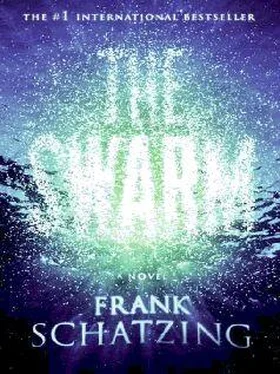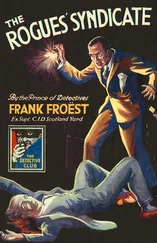'How do you know… ?' Delaware.
'Don't blame her,' said Greywolf. 'She didn't dare ask you again.'
'What did you tell her?'
'Nothing, you coward. You think you can lecture me on responsibility? Leon, my life might be pathetic, but you? You're dead already.'
Anawak replayed the words in his mind. 'Yes,' he said slowly. 'You're right.' He got up. 'But thanks for saving my life.'
'Hey, hang on a minute.' Greywolf blinked. 'What – what are you doing?'
'I'm leaving.'
'What? Come on, Leon, I… I didn't mean to hurt you, I. . . For God's sake, Leon, sit down.'
'Why?
'Because – because you haven't finished your Coke.'
Anawak sat down, picked up the can and drank. Greywolf sank down on the sofa.
'So what about that boy, then?' asked Anawak. 'Seems you've found a fan.'
'The lad from the boat? He was scared. I looked after him.'
'Just like that?'
'Sure.'
Anawak smiled. 'I thought it had more to do with wanting your picture in the paper.'
For a moment Greywolf looked annoyed. Then he grinned. 'Of course I wanted my picture in the paper. I love being in the paper. But that doesn't mean the other thing's not true.'
'The hero of Tofino.'
'Laugh all you like. Being the hero of Tofino was great. Total strangers came up and slapped me on the back. Not everyone can make their reputation with groundbreaking articles on whales. You have to take what you can get.'
Anawak drained the can. 'And how's your pressure group?'
'The Seaguards?'
'Yes.'
'History. Half were killed by the whales, the other half scattered with the wind.' Greywolf frowned. 'You know what the problem is, Leon? People are losing their significance. Everyone's replaceable. There are no ideals any more, and without ideals, there's nothing to make us more important than we are. Everyone's trying desperately to prove that the world's a little better with them than it would have been without them. I did something for that little boy. Maybe it was worthwhile. Maybe it makes me a bit more significant.'
Vancouver Docks
A few hours later, Anawak was on the jetty in the fading light. Not a soul in sight. Like all international ports, Vancouver harbour was gigantic.
Behind him lay the container port, with its angular mountains of crates. Black silhouettes of cranes stood out against the silvery-blue evening-sky. The outlines of car freighters loomed like enormous shoeboxes between container ships, cargo boats and elegant white reefer-vessels. To his right he could see a long line of warehouses. A bit further on hoses, metal plates and hydraulic parts lay in heaps. That was where the dry docks started, and beyond, the floating docks. The smell of paint drifted to him on the breeze.
He would have been lost without the car. He'd already had to stop a few times for directions but, reluctant to spell out what he was looking for, he'd asked the wrong question. He'd assumed he wanted the floating docks, so that was where they'd sent him. But when he articulated his question more precisely, he was directed to the dry docks. After two wrong turns he had finally arrived. He parked the car in the shadow of a long, narrow building, heaved his sports bag over his shoulder and walked along the metal fence until he came to a rolling gate that was slightly ajar. He slipped inside.
In front of him was a paved area, with a line of barracks on both sides. Beyond that, the superstructure of an enormous ship rose from the ground. The Barrier Queen was lying in a basin a good 250 metres long. There were cranes on either side of her, mounted on tracks. Powerful floodlights lit the area. There was no one in sight.
As he crossed the tarmac, keeping an eye open for any movement, he questioned the wisdom of what he was doing. The ship must have been out of the water for weeks. They'd have removed the outcrop and anything hidden within it. Any scraps in the scratches and cracks would have dried out by now. There'd be no sign of the thing that had lurked among the mussels. All in all, Anawak wasn't sure what he stood to gain from inspecting the vessel again. It was a stab in the dark. If there w as anything that might be useful to Nanaimo, he'd take it with him. If not, the adventure would only have cost him an evening.
The thing on the keel.
It had been no bigger than a skate or a squid and it had produced a flash of light. Lots of sea creatures did that: cephalopods, jellyfish, deep-sea fish. But Anawak was convinced that it was precisely the kind of flash that he and Ford had seen on the tape. The luminous cloud was many times bigger than the thing he'd seen, but the flashes of light had reminded him of what had happened beneath the Barrier Queen . If the same organism had appeared in both places, things were hotting up. The substance on the keel, the stuff inside the whales' brains and the thing in the dock all seemed identical.
The whales are just part of the problem – the only part we can see.
He spotted jeeps parked in front of the barracks. Light shone out of the building's windows. He stopped. They were military jeeps. What was the army doing here? Suddenly it occurred to him that he was standing without shelter in the glare of the floodlights. He crouched and hurried on until he neared the edge of the basin. He was so preoccupied with the presence of the vehicles that it was a few seconds before be grasped what he was seeing. His eyes widened. He forgot the jeeps and took a step closer.
The Barrier Queen was floating. He'd expected to see her resting on blocks. Why hadn't they drained it? Had they finished repairing the rudder? But then they wouldn't need the dock.
All of a sudden he knew the answer.
In his excitement he dropped his bag, which hit the ground with a thud. Startled, he glanced down the empty jetty. It was noticeably darker now. Floodlights cast their white-green beams along the dock. He listened for footsteps, but all he could hear was the noise of the city.
Faced with the basin full of water he wondered whether he was making a mistake. But he was frustrated by the committee's secrecy, and besides he'd come all this way. In any case, he'd be out of there in twenty minutes.
Anawak opened his holdall. It contained everything he needed to dive. If the Barrier Queen had been in the floating docks, it would have made sense to approach her from the sea. But this way was easier.
It was perfect.
He stripped to the waist, then took off his jeans and located his mask, fins and pen torch. Then he strapped his collection bag round his waist. His leg-mounted dive knife completed his gear. He wouldn't need oxygen. He stowed the holdall behind a bollard, gathered up his equipment and hurried along the edge of the basin till he reached a narrow ladder leading down to the water. He took a last look at the jetty. Light was still shining from the barracks, but no one was about. Noiselessly he made his way down, pulled on his mask and flippers and slipped into the water.
The biting cold cut through him. Without a protective layer of neoprene he had to be quick. Switching on his torch, he dived, kicking powerfully in the direction of the keel. The water was clearer than it had been in the dock, and he had a distinct view of the metal hull ahead, the red paint glowing in the torch light. He ran his fingers over the surface, paused, then pushed off and swam down.
After a few metres the ship's side disappeared under a dense coating of mussels. The crust on the keel was as thick as ever. Half-way towards the bow it seemed almost as though the outcrop had grown. So that was the explanation: the crust and its resident organisms were being examined in situ . The dry dock had been turned into a hermetically sealed laboratory, and flooded with water.
Читать дальше












